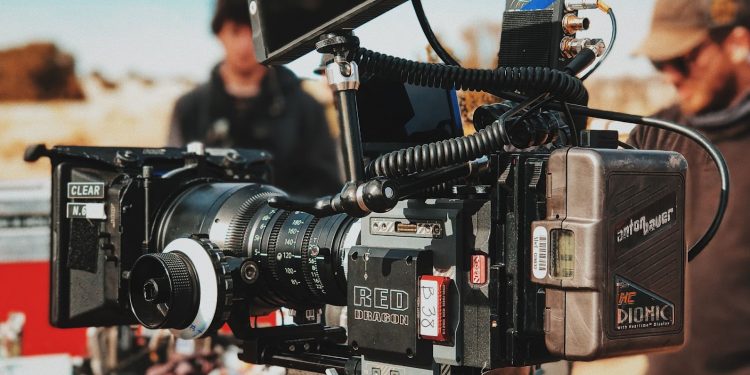Welcome to a new era of filmmaking where Artificial Intelligence is changing the landscape. A milestone year is 2023, as this will be the first time AI has played such an immense role in movie production, distribution, and audience involvement all at once. With such rapid growth comes controversy creating excitement mixed with apprehension within the industry for what’s undoubtedly to follow. In this blog post, we’ll delve deep into just how profound the artificial intelligence impact on film industries truly is; towards exploring both its capabilities that are promising yet also create negative repercussions. We’ll also look at the examples of industry giants like Netflix that are using AI capabilities to revolutionize their platforms. So, jump into the future of filmmaking in an era dominated by AI.
The Impact of AI on the Film Industry
AI is redefining issues, challenges, and opportunities in the film industry. AI technology has heavily influenced all aspects of the filmmaking process from pre-production to post-production. For instance, during pre-production, artificial intelligence can be used to optimize production schedules, and budgets through data analysis from previous projects while during filming computer vision technologies are used together with AI tools to automate whereby this edited work analyzes footage and creates a quick turnaround rough cut.
On the distribution side, AI helps studios determine the target audiences by crunching demographic data. Then they can send out marketing campaigns accordingly after using AI. Maybe it could even predict which movie is going to become the next box office hit: by looking at historical movie release dates and predicting future movies’ success. Finally, more interactive ways for viewers to experience a film in theaters – They are creating interactive commercials per audience demographics as well as automated feedback systems where directors get real-time answers from viewers on what they think about something – say a performance or scene respectively.
Netflix’s Unique Use of AI Technology
Netflix is differentiating itself from other industry giants by using Artificial Intelligence (AI) technologies to redo its streaming platform model completely. Aided by machine learning algorithms, Netflix pools information like user preferences and demographics to suggest users with customized solutions. In addition, natural language processing (NLP) powered tools through Artifici
Apart from market analysis, Netflix is also using AI to enhance the quality of its content. For example, earlier this year the company announced that it had purchased a technology known as “Deep Learning Super Sampling (DLSS)” which applies AI algorithms to improve video resolution and cut out noise without enlarging file size. This allows Netflix to offer viewers higher clarity on their streaming platform while protecting bandwidth concurrently.
If you check your domain or that stuff, but Netflix isn’t supported in your countries – e.g. China and some others – you might try the VPN service. There is a reliable way to access all the content of Netflix from anywhere everywhere on Earth. With VeePN you can customize your own VPN connection – choose one of the many servers offered by the network, select the desired encryption level and protocol, filter ads and trackers out as well, and enjoy an uninterrupted streaming experience without any geo-restrictions.

The Negative Impact of AI on the Film Industry
Though AI has created immense noteworthy benefits for the film industry, it also comes with a host of downsides. Notably, through automating certain aspects of filmmaking as afforded by artificial intelligence-driven technologies – such as editing and sound design – studios may end up reducing their reliance on human labour which can resonate into job loss and wage spillovers across the rest of the industry over time. Such an upended dynamic produces angst within labor dynamics per se regarding whether or not the entire ‘film workforce’ is sustainable over time.
In addition, the development of AI-enabled tools has also turned piracy into a relatively easy task. With advanced computer vision algorithms, pirates can identify and replicate exact videos with extreme accuracy using fast-moving automated software. Therefore, the convenience and performance guaranteed by these new technologies have resulted in an exponential growth surge for pirated content traded over the internet.
There needs to be recognition of both the advantages and disadvantages that AI introduced to the film industry while taking proactive measures towards resolving ethical and economic issues associated with such advances.
Final Thoughts
The role of AI in the film industry is poised to grow with the advancement of AI technology at an unprecedented rate and improve further. We must keep abreast with developments because of their potential to revolutionize various aspects of filmmaking. It is not only that we have to understand the negative impact AI may bring on our industry but also consider downsides from all angles so that we can make sure everyone comes up as a winner out of all these collective efforts for a future in filmmaking. This is to promote a vibrant and inclusive industry that welcomes AI to its core – while also fulfilling any concerns or challenges. Through constant dialogue, collaboration, and responsible implementation we can move towards the future where AI adds to creativity, efficiency, and storytelling by also safeguarding the unique human touch that makes filmmaking an art form.










